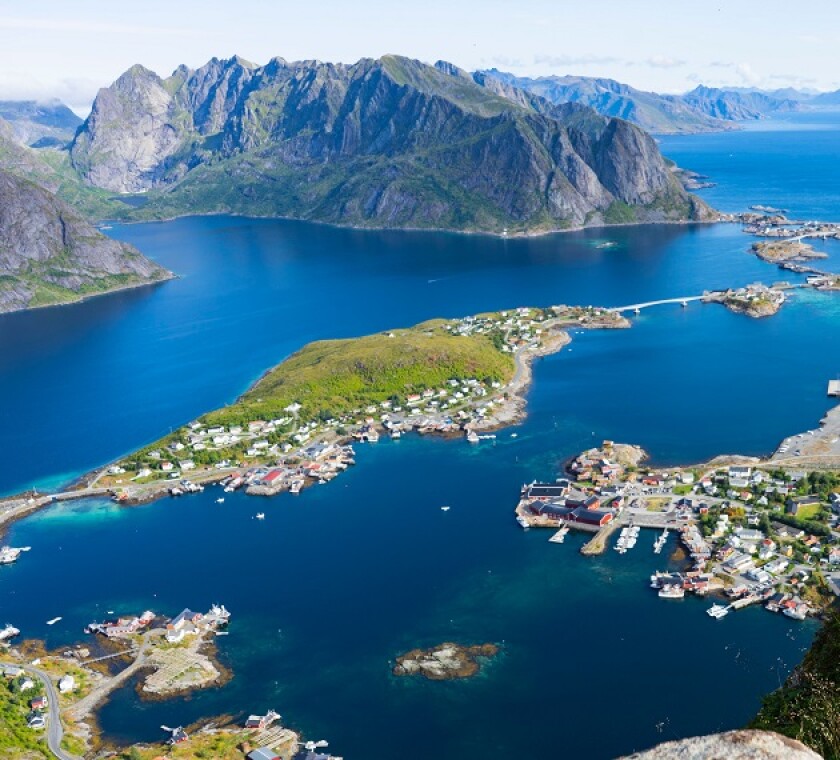On February 21 2022, the Ministry of Finance proposed a change in the Norwegian Tax Act, widening Norway’s taxation right on the Norwegian continental shelf. The proposed new rules have been circulated for public consultation.
Current legal position
Foreigners have limited tax liability to Norway. Currently, non-Norwegian tax residents, both individuals and companies, are liable to tax of wealth in, and income from, business activities which the foreigner is engaged in, and which take place in or are managed from Norway, including business activities in which foreign employees are made available to others in Norway cf. Article 2-3 (1) b) of the Norwegian Tax Act.
Norwegian territory at sea includes the territorial sea, extending to 12 nautical miles measured from the Norwegian baseline. Outside the territorial sea, including the Norwegian continental shelf, non-Norwegian tax residents are only subject to tax if the activity relates to petroleum cf. the Norwegian Petroleum Tax Act. The Norwegian government now proposes to widen its taxation rights by defining certain business activities on the continental shelf as taxable for non-Norwegian tax residents under the Norwegian Tax Act.
The proposed change
Under the proposed rules, there are three different types of business activities that will be considered taxable activities on the Norwegian continental shelf for non-Norwegian tax residents.
Firstly, mineral activities on the continental shelf, as defined under the Norwegian Seabed Minerals Act, are to be treated as taxable activities for non-Norwegian tax residents. For practical reasons this means that examination, such as searching and mapping, and exploitation of minerals on and beneath the seabed, will qualify as a taxable mineral activity. In addition, ancillary services (typically transportation and supply services) supporting the main activities, will qualify as taxable mineral activities, including also sub-contractors.
Secondly, activities on the continental shelf related to production of renewable energy resources, as defined under the Norwegian Act on Offshore Renewable Energy Production, is proposed to become taxable for non-Norwegian tax residents. Renewable energy resources are defined as production of electronic energy by means of renewable energy sources, typically including wind, waves, tides and solar energy. In the legislative proposal, the taxation right is not limited to certain renewable resources. By using a technology neutral term, it is instead sought to be dynamic and include energy resources that are not yet discovered. The taxation right is intended to include all steps of energy production, meaning both the searching stage, the examination stage and the exploitation of the renewable energy resource as such. In addition, ancillary services are suggested to fall within the scope. For practical matters this means that non-Norwegian tax residents preforming activities such as examining seabed conditions and installing windmills on the continental shelf will become subject to tax under the new rules.
Lastly, the proposed rules make activities related to capture and storage of carbon dioxide taxable to Norway. This includes activities as defined in the Norwegian Regulation to Act on Petroleum Activities and Regulation on storage and transportation of CO2 on the continental shelf. Capture and storage of carbon dioxide comprise of measures to redeploy carbon dioxide from a gas flow following permanent storage of the carbon dioxide in order to reduce the amount of carbon dioxide in the atmosphere. Capture and storage of carbon dioxide have three main elements: capture, transportation and permanent storage. These three elements, along with examination, exploration, exploitation and the like, fall within the scope of taxable activities under the new rules. Ancillary services are also included in the scope of taxable activities, whereby supply services may serve as an example.
Note that the proposed changes will not only include non-Norwegian tax resident companies working with or providing business activities as outlined above, but also non-Norwegian tax resident employees (individuals) working within the abovementioned business activities, hereunder salary income.
Consequences
The deadline for providing comments to the legislative proposal is May 21 2022. The changes are expected to be passed and proposed to enter into force immediately after its adoption.
The immediate effect of the new rules, apart from widening Norway’s taxing right, are compliance obligations. Foreign employees working in Norway will generally be liable to tax for salary income earned in Norway. Even though applicable double tax treaties may eliminate or reduce the obligation to pay tax in Norway, compliance obligations, such as payroll reporting, still applies in accordance with domestic law.
Employers with foreign workers on the continental shelf are also obliged to report foreign contracts to the Norwegian Tax Authorities. As compliance costs occur for the employer regardless of whether the employee shall pay tax in Norway, such costs should be taken into account when providing fee-estimates in bid processes.
It should also be added that certain double tax treaties do not include the continental shelf in its scope, e.g. Italy and Switzerland, making it less favourable for these states to exercise the above activities on the Norwegian continental shelf going forward.
Margrethe Tranøy Hovde
Associate, Deloitte Norway
Henna Maria Råd Valderhaug
Associate, Deloitte Norway











